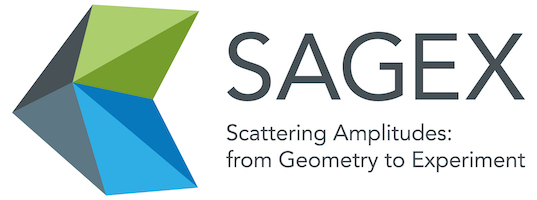Scattering amplitudes and form factors in EFT
Stefano De Angelis
Link to PDF
Abstract
The central theme of the thesis is the application of modern on-shell techniques to compute Scattering Amplitudes and Form Factors in various Effective Field Theories. In particular, we apply such techniques in the context of the Standard Model Effective Field Theories, focusing on the renormalisation group evolution of irrelevant operators, and the study of the classical binary problem in gravitational theories, beyond General Relativity including higher derivative interactions.
We first show how to find a basis of EFT interactions from a purely on-shell point of view. From these EFT building blocks, any tree-level amplitude can be computed using a recursive algorithm which requires only the knowledge of lower-point amplitudes. Starting from these results, modern (generalised) unitarity techniques allow for the computations of higher loop amplitudes which can be used to characterise precision observables both for gravitational waves and for collider experiments. We will focus on the computation of form factors in the context of Standard Model Effective Field Theory which allowed us to compute for the first time the one-loop mixing matrix for all the dimension-eight operators in the theory. Then, we will show how to compute the deflection angle and the time delays induced by higher-derivative corrections to the Einstein-Hilbert action from the eikonal form of gravitational scattering amplitudes.
Funded in part by the European Union’s Horizon 2020 Framework Program under the Marie Skłodowska-Curie grant agreement No. 764850 (SAGEX).
 |
 |